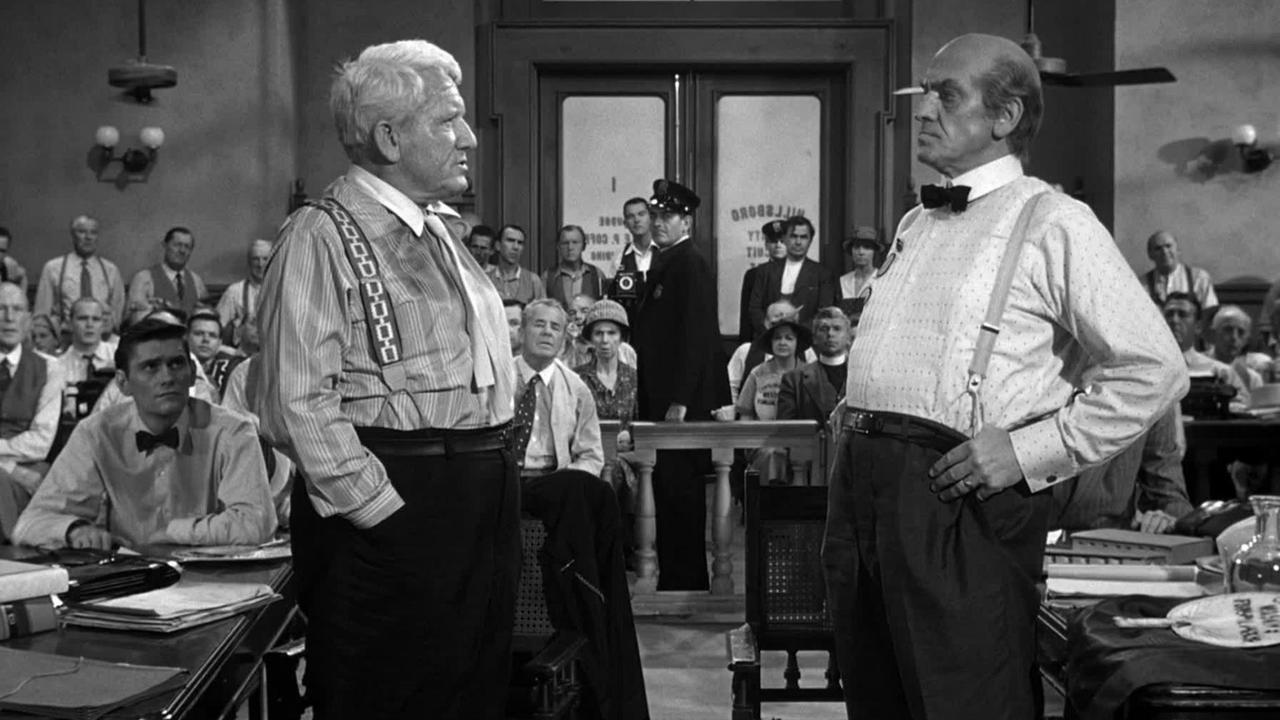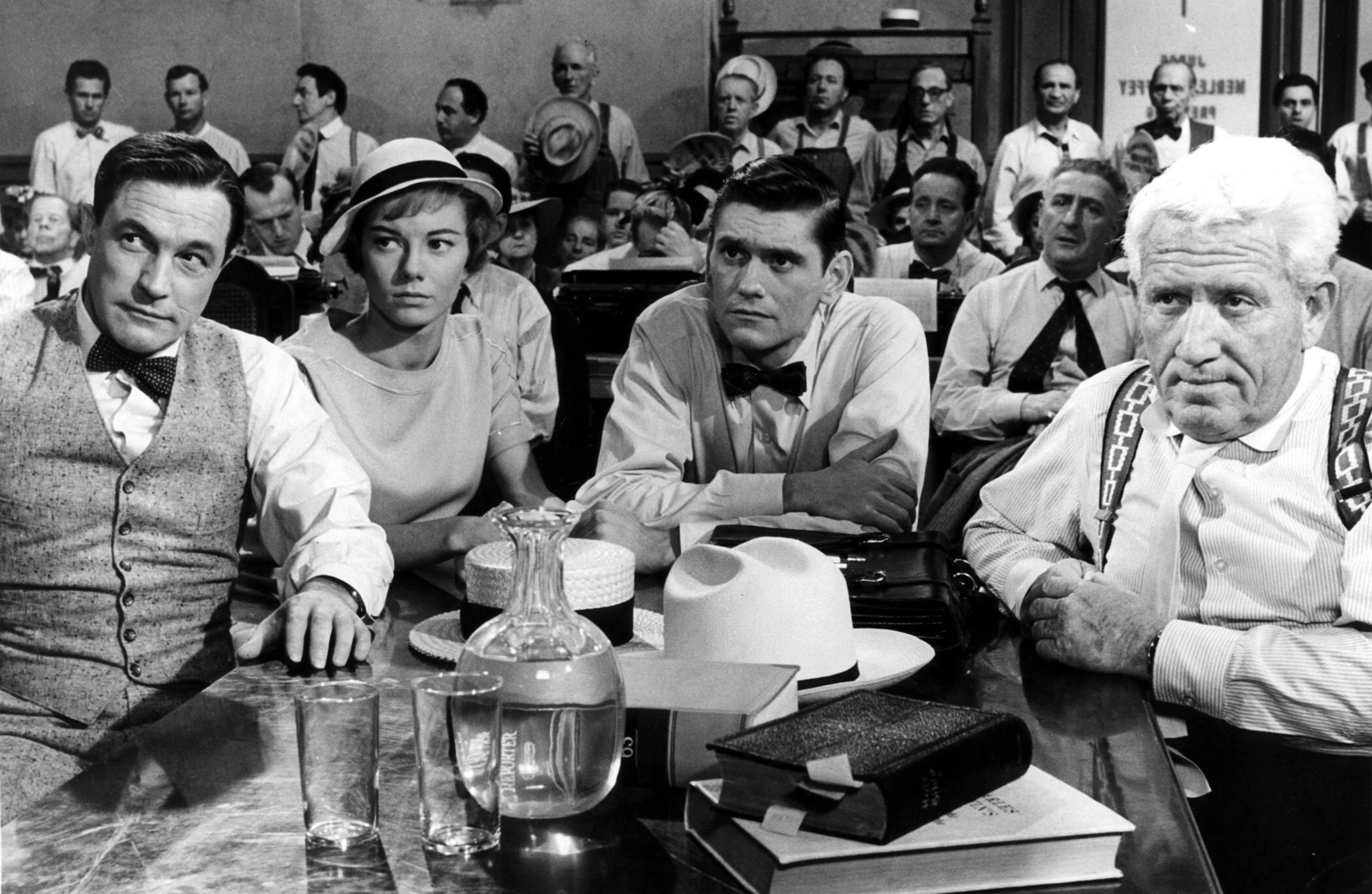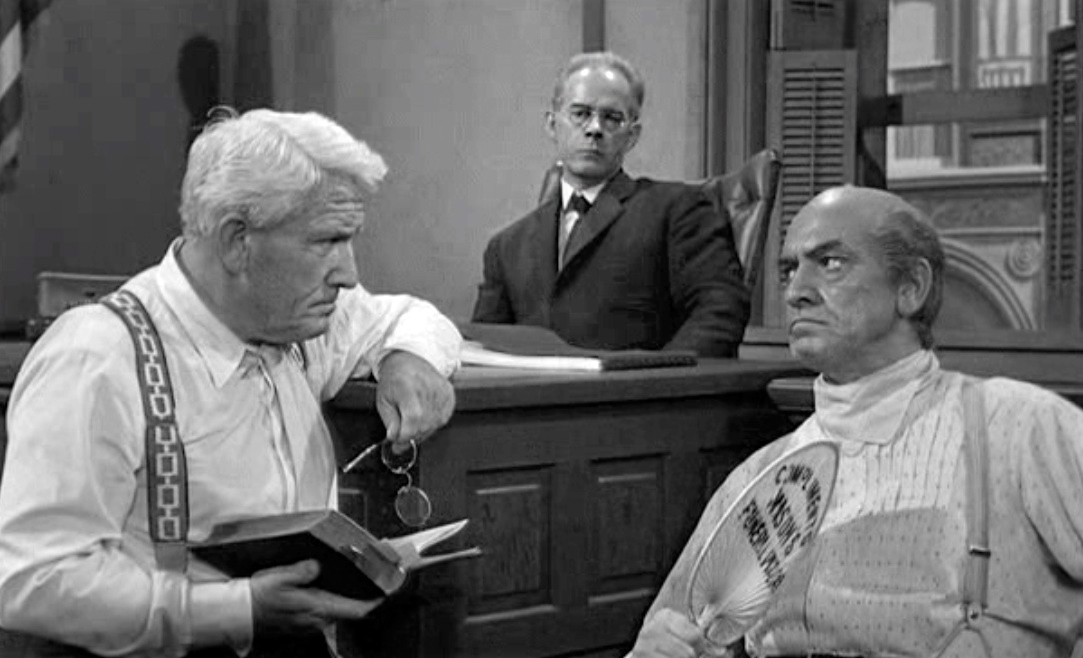‘Inherit the Wind’ is a drama film that revolves around the trial of Bertram Cates, a schoolteacher whose crime is that he taught his students the theory of evolution, an illegal act in the Southern town of Hillsboro. Defending him is the renowned lawyer Henry Drummond, who is the subject of controversy for his views throughout the country. Standing against the two is Matthew Brady, a celebrated politician, former Presidential candidate, and Biblical scholar. But with the rest of the town supporting Brady, will Drummond be able to successfully pull his client out of the fires!?
Directed by Stanley Kramer, the 1960 film features a star cast comprising Spencer Tracy, Frederic March, Gene Kelly, Dick York, and Harry Morgan. The story’s depiction of the age-old clash between science and religion within the walls of a courtroom is certainly unique in its design, but is it authentic? Is there some truth to the proceedings? Worry not, for we have the answers for you!
Inherit the Wind: Loosely Inspired by Real Events
Yes, ‘Inherit the Wind’ is inspired by a true story. The film is based on the eponymous play written by Jerome Lawrence and Robert E. Lee in 1955, which is, in turn, based on the case of the State of Tennessee vs. John Thomas Scopes, more commonly known as the Scopes “Monkey” Trial. But while both the film and the play are based on the trial, they’re at the same time a fictionalized version of events as many of the details have been changed to create an altogether different story. Lawrence and Lee even mention in a note at the beginning of the play that “‘Inherit the Wind’ is not history.”

The first and foremost of these changes are the characters themselves — everything from their personalities to their names have been altered in the film. William Jennings Bryan, Clarence Darrow, Scopes, and H. L. Mencken were real-life participants in the case and inspired the creation of the film’s characters. But since ‘Inherit the Wind’ is not meant to be a historical account or imitation of any kind, their personalities were drastically changed or even developed completely opposite to their real-life inspiration, as is the case with Matthew Brady and Henry Drummond.
Henry Drummond (reportedly based on Clarence Darrow) is less cynical and biting than his real-life inspiration. Matthew Brady (based on William Jennings Bryan) is depicted as a religious fanatic who dies of a heart attack at the end after having lost the case. In fact, in the real trial in 1925, Bryan won the case, but the verdict was overturned two years later, in January 1927. Unlike in the film, he passed away six days later. Some details in the film, however, can be found in the trial proceedings.
Darrow’s citation for contempt of court after a heated exchange between the lawyer and Judge Raulston, for example, and his request that the charge be dropped, have all been taken verbatim from the case records. Though at face value ‘Inherit the Wind’ seems like a simple (though not-so-simple) case of religion vs. science, Creationism vs. Darwinism, in truth, it is meant to be an indictment of McCarthyism that was prevalent at the time the play was written. “We used the teaching of evolution as a parable, a metaphor for any kind of mind control,” Lawrence told Newsday. “It’s not about science versus religion. It’s about the right to think.”

Based on a true story, ‘Inherit the Wind’ showcases how writers, filmmakers, and anybody who is creating any form of art can take a learning moment in history to create another one. It shows, at its core, how the existence and usage of media aren’t limited to entertainment only but can be didactic as well. Though a fictionalized account of the Scopes trial, ‘Inherit the Wind’ nonetheless conveys the original message against the spread of anti-intellectualism and the suppression of the arts and sciences due to prejudiced and misinformed beliefs.
Read More: Best Legal Movies of All Time


You must be logged in to post a comment.